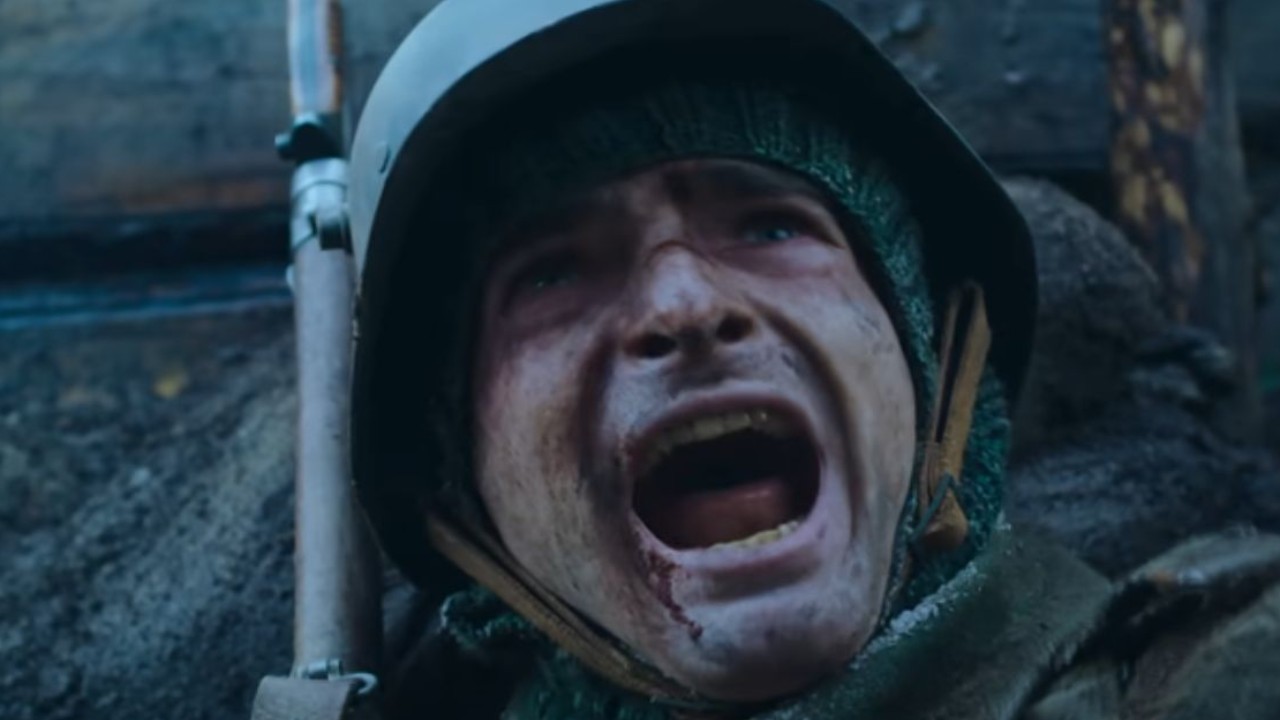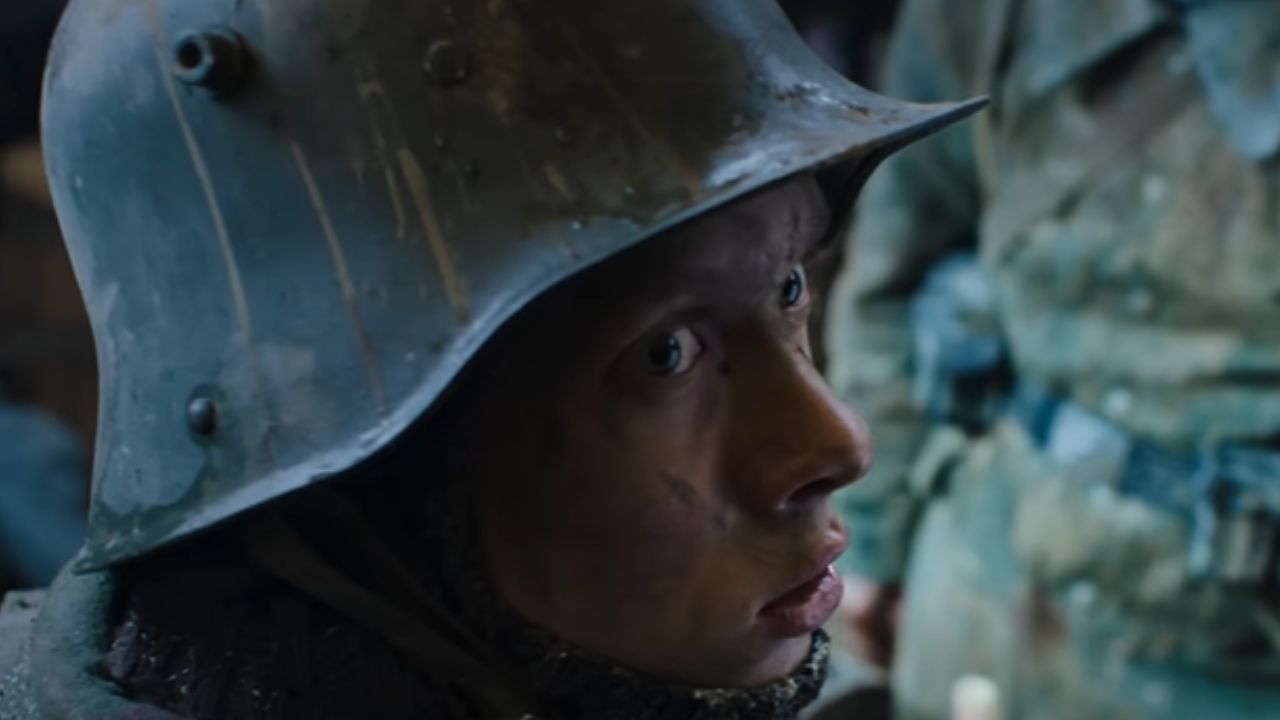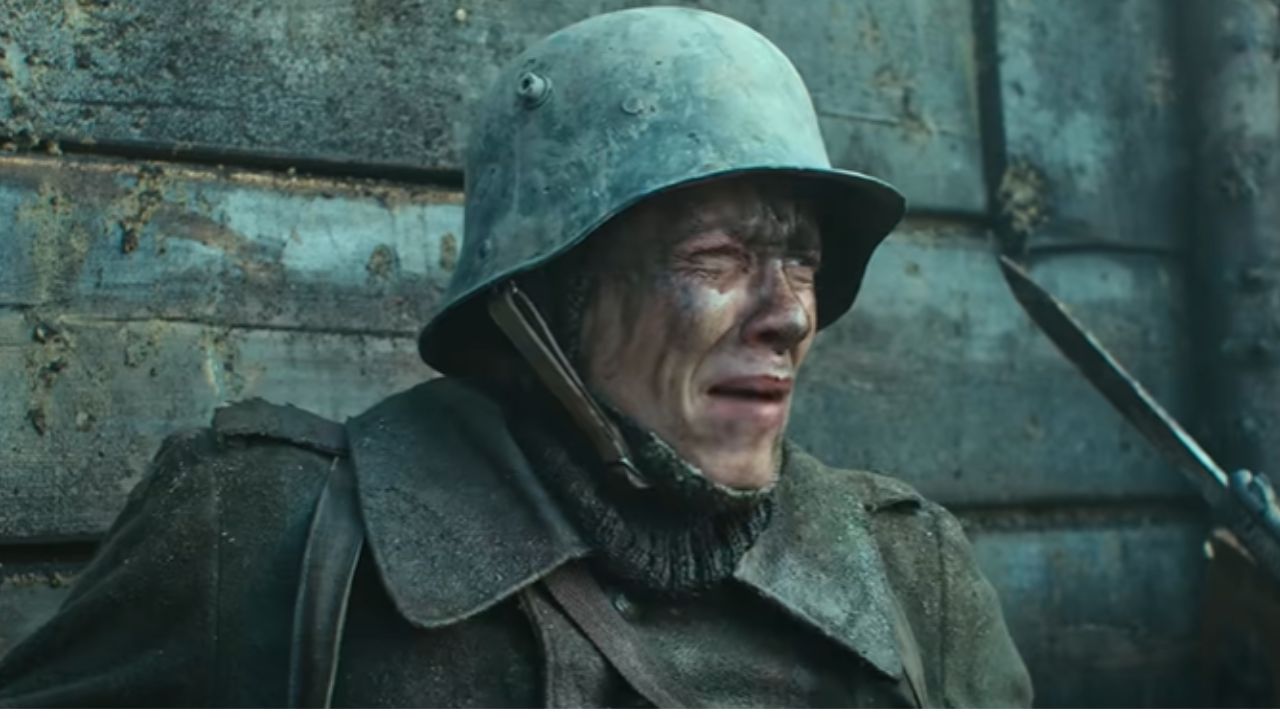What Are The Themes Of Netflix's All Quiet On The Western Front? Explored
After seeing the horrors of battle, Paul Bäumer has a hard time connecting with his family when he comes home, the war has changed him so much that he feels distant from his old life.

War movies often show battles and heroic soldiers but there are very few films that dive deep into the true horrors of war. One such recent film is Netflix’s All Quiet on the Western Front. This powerful film shows World War I through the eyes of Paul Bäumer, a young German soldier. Instead of making the war look heroic, it shows the harsh truth and its impact on soldiers.
All Quiet on the Western Front explores many themes like brutality, loneliness, nationalism, and more among the soldiers. Let’s look at these themes and see how they helped in shaping the story.
The brutality of war
In All Quiet on the Western Front, the harshness of war is a key theme. The film highlights the severe conditions soldiers face. They deal with constant combat danger, starvation, illness, and harsh weather. Paul, the main character, directly experiences these challenges. He deals with dirty, rat-filled trenches and never-ending enemy attacks.
The film does not glorify war. Instead, it presents a raw and unfiltered view of the battlefield. Paul and his comrades face not only the terror of fighting but also the emotional toll of witnessing the brutal consequences of war. New war technologies, including tanks, airplanes, and poisonous gas, only add to the soldiers’ suffering. The film makes it clear that the war is brutal, destroys lives, and offers little in return.


Ryan Reynolds Hopes 'Darling' Rob McElhenney Cameo Will 'Live on in Digital Extras'; Details Here
Paul’s alienation
One of the most striking themes in the film is Paul’s sense of alienation. After seeing the horrors of battle, Paul has a hard time connecting with his family when he comes home. The war has changed him so much that he feels distant from his old life. He finds it hard to relate to his family, who cannot understand what he has been through.
This shows the deep emotional scars left by the war. Paul and his fellow soldiers have become so numb to violence that they struggle to feel or express emotions. This sense of alienation is a major part of the story. It shows how war changes young men into shadows of their former selves.

Deadpool And Wolverine: Why Were Cable And Domino Left Out Of Third Movie? Explained
The impact of Nationalism
Nationalism, or strong pride in one’s country is an important theme. The film shows how nationalism drives young men like Paul to join the army. Kantorek, Paul’s old teacher, pressures students to enlist, promising them honor and glory. But once they are fighting the soldiers see that this patriotic pride is just a way to control them.
Paul and his friends find nationalism to be meaningless. They realize that only the soldiers pay the real cost of war, not the leaders who stay safe. The film shows how this loss of faith in nationalism affects how the soldiers view their sacrifices and the purpose of the war.
Unity among soldiers
Despite the horrors of war, one positive aspect is the strong bond between soldiers. The film shows how going through tough times together creates deep friendships. Paul and his fellow soldiers support each other, whether they’re sharing meals or helping each other survive. Their friendships provide comfort amid the chaos and pain.
For Paul, these connections help him deal with the horrors of war. The film shows that while war can dehumanize people, it can also bring them closer together. This unity is an important theme of All Quiet In The Western Front.


The Boys Getting Soldier Boy And Stormfront Prequel Series Titled Vought Rising With Jensen Ackles And Aya Cash? SDCC 2024 Reveal Explored
The dehumanization of soldiers
In the film, soldiers are often compared to animals to show how war dehumanizes them. They live in dirty conditions, eat from shared dishes, and focus on survival rather than individual needs. This dehumanization affects them physically and mentally. The constant threat of death takes away their personal identities. The film shows how war turns people into mere parts of machines and acts on instinct rather than individuals.
The limitations of words
Paul’s struggle to express the reality of the war is also a key theme. He feels that words can’t fully show the horror and suffering he faces. Sometimes, he thinks that language makes the war seem even worse. This shows the deep pain of war and its effects on those who live through it. It highlights how hard it is to convey the true nature of war with just words. Also, the film somewhere shows Paul’s frustration as he is not able to share his experiences and feelings properly.
The 2022 adaptation vs. the book
The 2022 adaptation also offers a fresh view of the classic novel. It stays true to the main themes but has some differences from the book. For example, Kantorek, who is a big character in the book has a smaller role in the film. The movie focuses more on how war affects Paul and his friends. It does not dive deep into why they joined the war.
If you haven’t watched All Quiet on the Western Front, then you can watch it on Netflix.

The Boys Season 4: Is Soldier Boy Stronger Than Homelander? Explained





 JOIN OUR WHATSAPP CHANNEL
JOIN OUR WHATSAPP CHANNEL






































































